Living abroad for over 16 years has taught me how to adapt. One important lesson in adaptability has been, going without. Going without things that I took for granted living and growing up in Canada and were a part of my daily routine. By going without and not moaning about what I couldn’t get in a new place, I have found creative ways to solve the problems of everyday life, and local treats and tricks that work in my new environment.
Most of the adapting has centered around food for me, and was one of the biggest changes when I first left Canada and moved to England. Grocery shopping was a mystery! Unusual brands, completely different snacks, strange food items (ox tongue?! Really?! Not in Saskatchewan!), and why on earth were the eggs brown?! I remember actually asking a fellow shopper, a complete stranger, if the brown eggs were normal chicken eggs! I had grown up with only seeing white egg-shelled eggs. She happened to be a fellow Canadian and completely understood my confusion, guided me swiftly through the new shopping maze…AND gave me a ride back to my nurses’s living quarters (a huge kindness that I still remember).
While living in Africa I adapted to eating and cooking only what was in season and realized quickly that perhaps I could go without the imported goods that were too pricey and would inevitably be stale and severely crushed. Of course I would occasionally splurge on a comfort food item from home, Hint of Lime chips being a favourite and any form of chocolate bar. After many disappointments and dutifully gumming through stale chips and opening melted, white coated chocolate bars, I gave up. Valuable lessons learned for today, living in the islands where imported goods can be incredibly expensive for items that I would normally put in my cart: salad dressings, marinades, asparagus, etc.! More than often the chips are stale, (except for the Blue Corn chips I can get at Cost- U- Less which I learned to keep in the freezer for freshness. It works! I then just toss what I want to eat in the oven to heat up and they are crisp and fresh as can be!) and one must be very conscious of expiry dates.
What I thoroughly enjoy about this adaptation process is that I have become a much more creative cook and know exactly what is going into my meals. I make my own marinades, salad dressings, chicken stock, tomatoe sauce, mayonnaise, peri peri sauce, pesto, granola, AND sometimes even my own ricotta cheese (quite simple really, all you need is whole milk, salt, lemon juice and a cheesecloth!). I usually take one day during the week to prepare the pantry.
My day starts with a visit to the local market, stocking up on all the essentials (garlic, ginger, chilis, lemon/ limes, herbs that are in season, fruit in season, flowers to brighten the work space, loads of tomatoes and onions, shaved coconut to make coconut milk, fresh coconut water to keep hydrated, and one pineapple on a stick as a treat!).
Then it’s home to get to work. I have a lovely lady working for me who is an immense help with chopping all the fruit to freeze for our daily fruit smoothies, finely chopping garlic to use for the week, grating the ginger for sugar-free, ginger- beer cordial, and for the clean- up after the creativity is completed!
The process takes me the whole day, but is something that I enjoy and saves time when it comes to making dinner or a snack at short notice during the week. One of my go-to cookbooks for stocking the store cupboard is café food at home, Evan Faull, a gift from my thoughtful cousin (p.s.bonjour).
Of course a day spent in the kitchen requires a great play list (Best of Mahalia Jackson is just right for my mood today) and an apron (I chose a vintage apron from my Grandma Krahn!).
I’d love to hear what your time-saving tricks are in the kitchen!
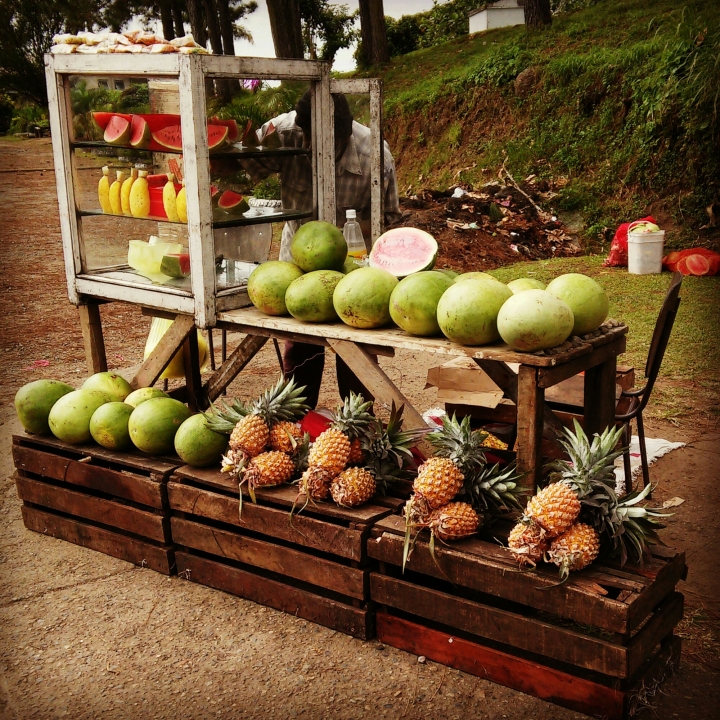
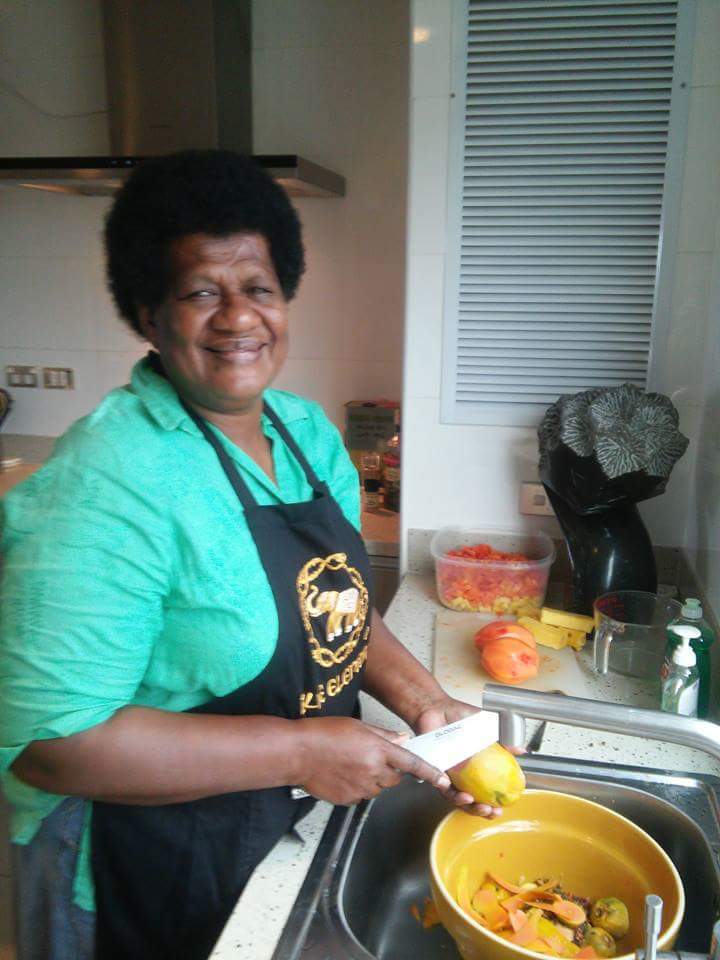
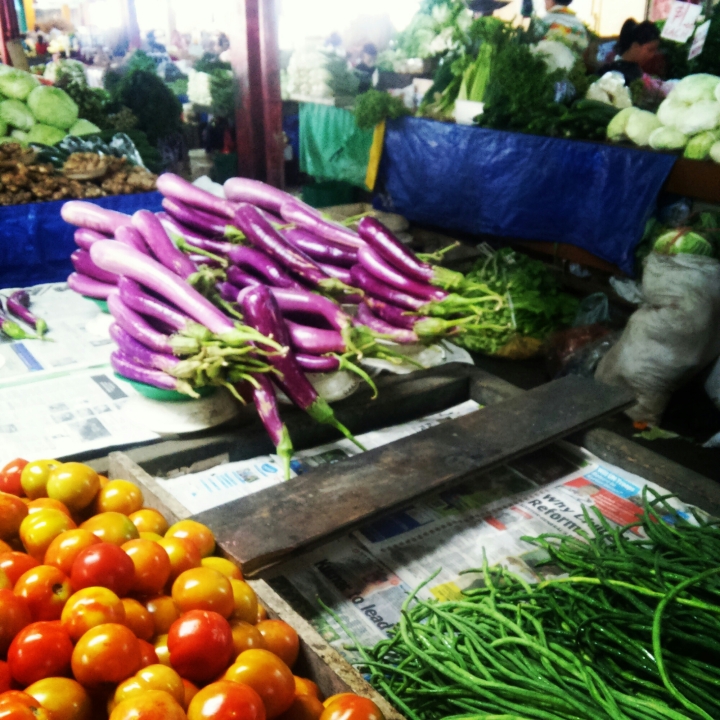
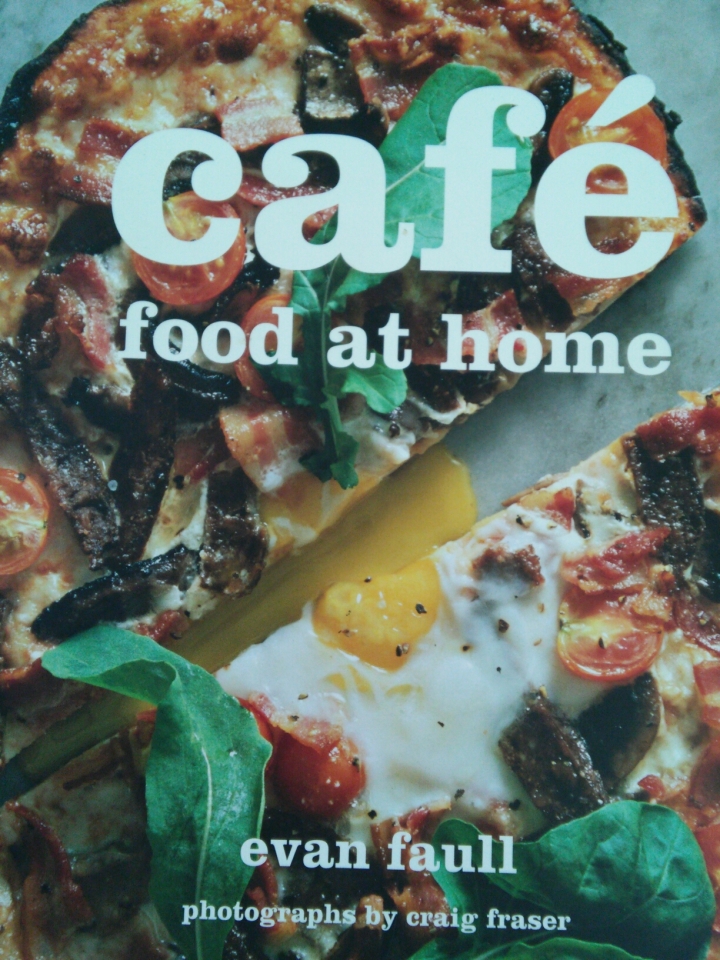
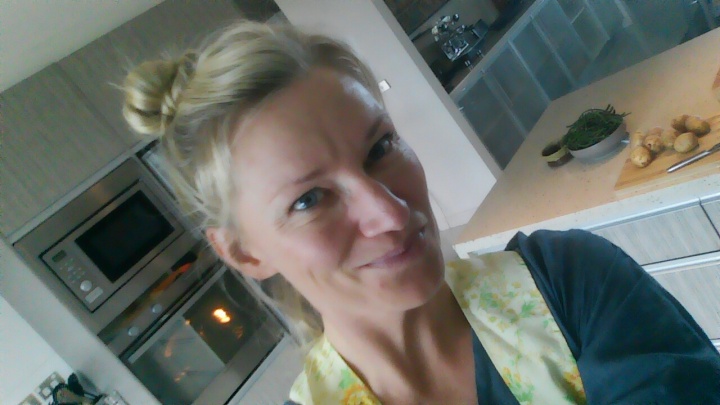
Nice to hear Grandma Krahn’s apron is still in use!
LikeLike
Just one way to stay connected while living so far from family!
LikeLiked by 1 person
I love this post! I find the whole food issue has been one of the most significant and ongoing aspects of my nomadic life. I think it’s because food, for so many of us, is not just our nourishment, but our culture and our hearts. I’ve always liked to cook well enough, but it wasn’t until I had to learn to cook for my family and adapt what I was cooking to each new home that I really saw it as something that had become a part of me – not jut a survival mechanism, but a way to say “home” whenever home can be a bit nebulous. Thank you!
LikeLike
Thank you Jodi! I like what you say about food being so much more than nourishment…so true for us as well! I love all the new ideas and ways of cooking that I learn with each new ‘adapting’ experience.
LikeLike